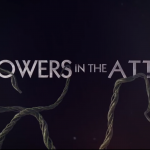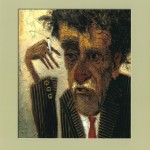Every Monday in Books Besides the Bible, Ethan Bartlett considers the value and pleasure of reading for Christians.
Lately I’ve been doing a lot of re-reading. This started sort of by accident, when I decided to re-read all ten volumes of the Sandman sequence of graphic novels. I did that purposely enough, but what I hadn’t counted on was that Sandman is, for me, the sort of story that, upon finishing, basically renders all other stories lacking. I don’t want to read any other fiction afterward, because no other fiction seems quite as good.
So having tossed a couple of books (which, for all I know, may be fine novels) aside in despair, I retreated in self-defense into other books which, at the time of first reading, seemed like the end-all of fiction: John C. Wright’s Chaos trilogy, Salinger’s Glass family books (of which last week’s Franny and Zooey is one), Kelly Link’s Magic for Beginners, Bradbury’s Something Wicked This Way Comes, Dinesen’s Babette’s Feast, and a couple of my favorite Shakespeare plays (The Tempest, Hamlet, Richard III).
Gracious, what an idiosyncratic list.
All of these, along with Sandman, are stories I consider masterpieces of one kind or another. But that’s not really why I re-read them. I’m going to admit it: I re-read them seeking emotional fulfillment, seeking that warm, cathartic, exhilarating feeling of having just finished something truly brilliant.
So how does one define a “masterpiece”? Is it an exhilarating story, or is it a technically perfect novel? The answer, of course, is less either/or than it is Yes, and.
In my Literary Criticism class at my (Christian) undergraduate college, a classmate of mine asserted that we shouldn’t “love” any books other than the Bible. It took me a bit to figure out what rang false in this statement. Then I drew a chart: parallel lines connecting “Love for God (who is perfect)” to “Love for people (who are imperfect)”, under which ran “Love the Bible” connected to “Love books besides the Bible.” (Okay, maybe it didn’t contain a reference to my future column title. But it was something like that.)
Of course, the outcome of this line of thinking is going to depend on one’s definition of love. Personally, I find it unhelpful in most circumstances to speak of love as an emotional experience, but love among fallen humans is also not dependent on being technically perfect (if it were—that is, if we had to be perfect—none of us would be loved).
Love, of whatever kind, is essentially dependent on grace. As Christians, we depend on God’s grace for salvation; as humans, we love one another through grace. Beloved books, too, tend to depend heavily on grace.
Examples: The Adventures of Huckleberry Finn is structurally imperfect—the tone of the opening, the tone of the middle, and the tone of the end don’t match up, and the plot is imperfectly balanced. Yet Hemingway called it “the only American novel.” Harry Potter and the Half-Blood Prince—book six of the series—is the first of the Harry Potter novels to have a really solid story structure. Yet the public fell in love with the first novel, which is a structural, tonal, and plotting mess. Watchmen is a structurally perfect graphic novel, yet I like Sandman—the first couple of volumes of which are, in terms of structure and story, also a mess—ten thousand times better (approximately).
Even The Lord of the Rings, that touchstone of modern popular literature, is in many ways a mess at least most of the way through The Fellowship of the Ring, not to mention the disjoint between the tone(s) of the trilogy and the tone of its prequel, The Hobbit.
So what is it that buoys up these works against the barbs of over-educated critics everywhere? I submit that it is grace. Grace is a force that works to fill in gaps, taking the imperfect and letting it put on perfection. Each of the disparaged works above—Harry Potter, Huck Finn, Tolkien’s books, and even in an often-dark way Sandman—is in its own manner chock-full of grace.
Of course, to conclude that “a masterpiece is something that is chock-full of grace” might raise, or leave, as many questions as it answers (if, indeed, it answers any). But as I’ve mentioned before, literature is more about questions than answers, anyway.











